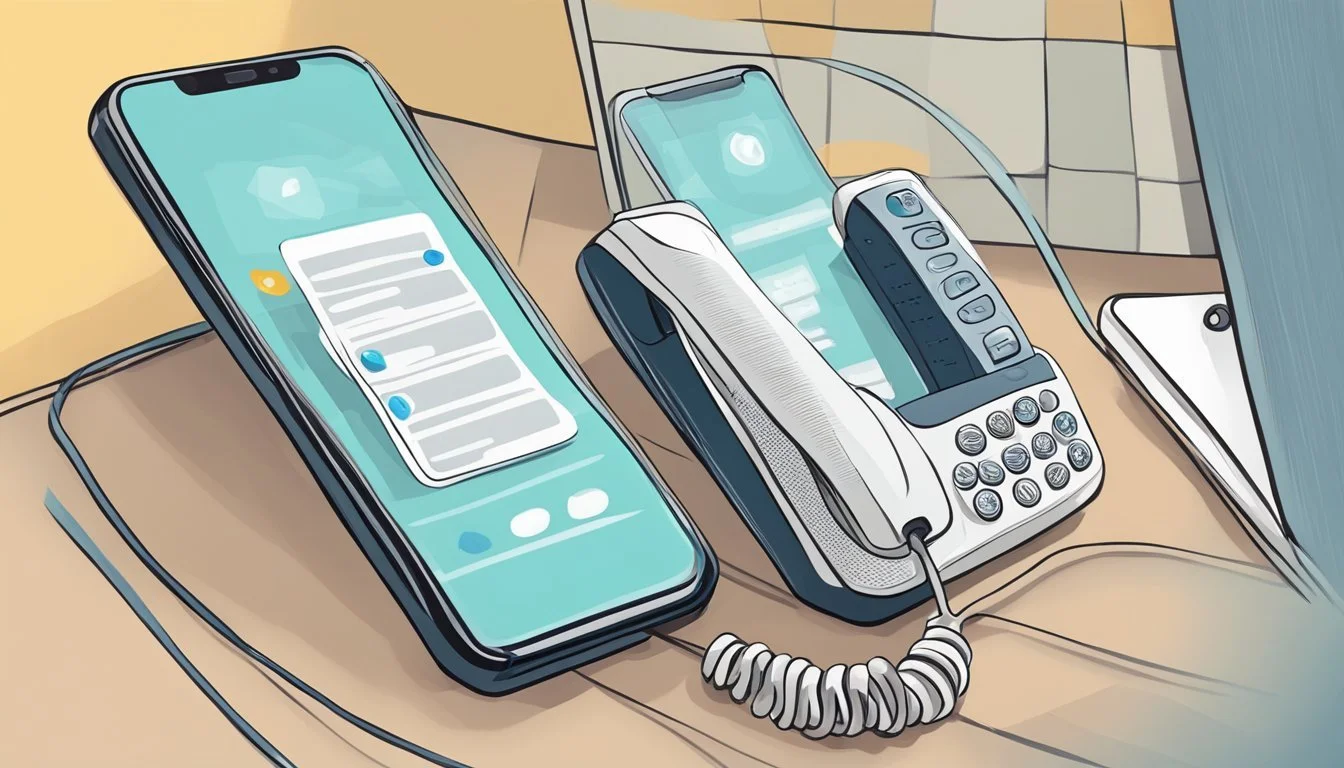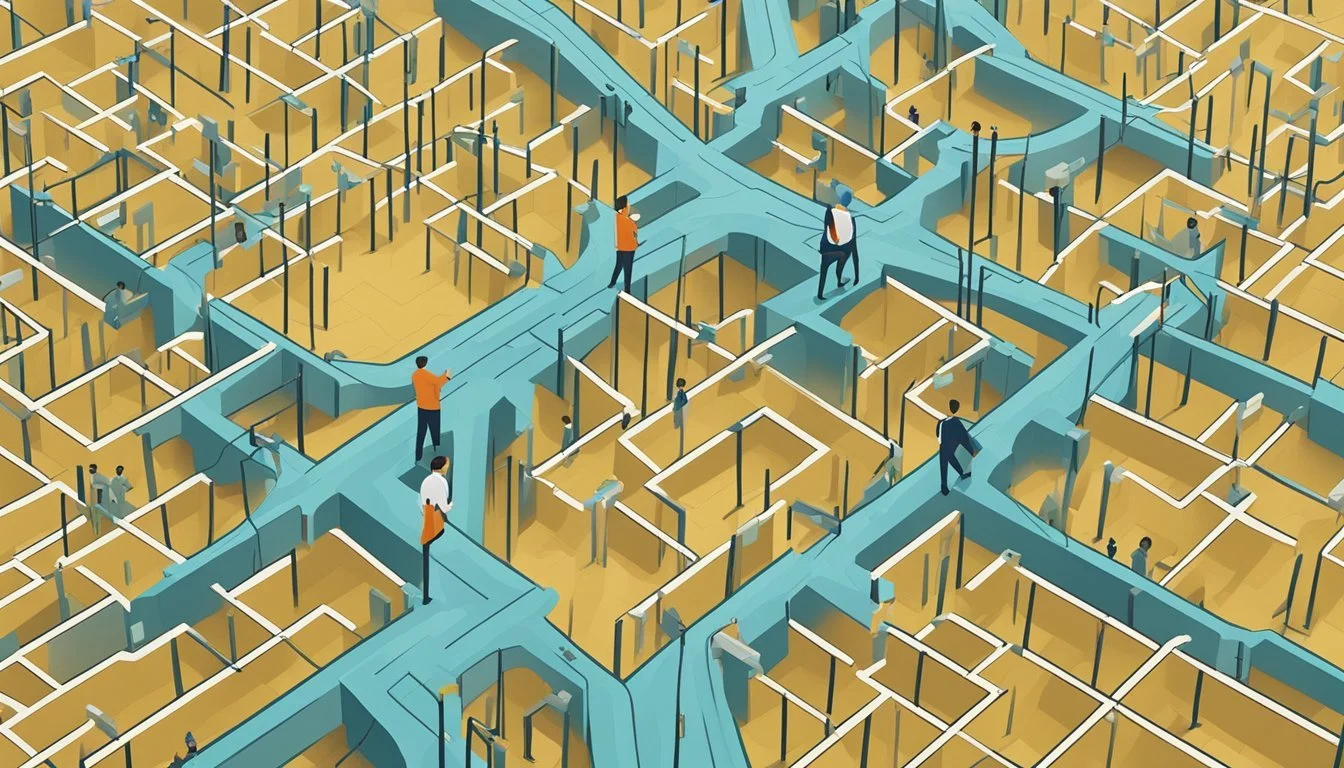Why a Narcissist Unblocked Me: Understanding Their Manipulative Tactics
When a narcissist unblocks someone, it often signals a calculated move rather than genuine reconciliation. This action typically serves their own interests and perpetuates a cycle of manipulation. Narcissists may unblock a person to regain control, seek attention, or access their "narcissistic supply" - the validation and admiration they crave.
The pattern of blocking and unblocking is a common tactic in narcissistic behavior. It creates emotional turbulence for the target, leaving them confused and vulnerable. This unpredictable communication can be a form of psychological manipulation, keeping the other person off-balance and more susceptible to the narcissist's influence.
Understanding the motivations behind a narcissist's actions can help individuals protect themselves from further emotional harm. While being unblocked might seem like a positive step, it's crucial to recognize that narcissists rarely change their fundamental behavior patterns. Maintaining healthy boundaries and seeking support from trusted sources remains essential when dealing with narcissistic individuals.
Understanding Narcissism and the Act of Blocking
Narcissism involves an inflated sense of self-importance and a need for constant admiration. Blocking serves as a tool for narcissists to exert control and maintain their self-image.
Defining Narcissism
Narcissistic Personality Disorder (NPD) is a complex mental health condition. It's characterized by an excessive need for attention and admiration. People with NPD often display grandiosity and lack empathy for others.
Narcissists struggle with maintaining healthy relationships. They frequently manipulate others to fulfill their needs. Their fragile self-esteem requires constant external validation.
NPD affects 1-6% of the population. It's more common in men than women. The disorder can cause significant distress in personal and professional life.
Blocking as a Control Strategy
Narcissists use blocking as a powerful manipulation tactic. It allows them to assert dominance and control over others.
By blocking someone, a narcissist:
Denies access to their attention
Punishes perceived slights
Maintains their inflated ego
This behavior stems from their need for narcissistic supply. When threatened, they may block to protect their fragile self-image.
Blocking can be temporary or permanent. It often leaves the blocked person confused and hurt. Narcissists may unblock later to regain control or attention.
Reflection on Unblocking
When a narcissist unblocks someone, it often signals a shift in their tactics or needs. This action can have various meanings and motivations behind it, requiring careful consideration from the person being unblocked.
What Does it Mean When a Narcissist Unblocks You?
A narcissist unblocking someone typically indicates they want to reestablish contact. This move doesn't necessarily mean they've changed or want reconciliation. It's often a strategic decision to regain access to their former source of narcissistic supply.
The act of unblocking can be part of a manipulative cycle known as "hoovering." This tactic aims to draw the person back into the narcissist's sphere of influence.
Unblocking might also signify the end of a silent treatment period. The narcissist may feel they've made their point and now want to reassert control.
Motivations Behind Unblocking
Narcissists unblock people for various reasons, primarily centered on their own needs and desires. They might be seeking attention, validation, or emotional support.
Some common motivations include:
Boredom or loneliness
Need for narcissistic supply
Desire to manipulate or control
Curiosity about the other person's life
The narcissist may also unblock someone if they believe it will benefit them in some way, such as improving their image or gaining access to resources.
It's crucial to remember that the act of unblocking rarely indicates genuine change or remorse on the narcissist's part. Their primary focus remains on fulfilling their own needs and maintaining control.
Navigating Communication After Being Unblocked
When a narcissist unblocks you, it can create confusion and uncertainty. Responding thoughtfully and setting firm boundaries are crucial steps to protect your well-being.
The Dilemma of Responding
Receiving contact from a narcissist after being unblocked can trigger a mix of emotions. Many feel tempted to respond immediately, hoping for closure or reconciliation. However, this impulse often leads to further manipulation.
Taking time to process your feelings before engaging is essential. Consider whether re-establishing contact aligns with your healing journey and personal goals. If you choose to respond, keep messages brief and factual.
Avoid sharing personal information or engaging in emotional discussions. These can provide openings for the narcissist to exploit. Remember that their sudden reappearance likely serves their own interests, not yours.
Establishing Clear Boundaries
Setting and enforcing boundaries is critical when interacting with a narcissist. Clearly communicate your limits regarding contact frequency, topics of discussion, and acceptable behavior.
Be prepared to reinforce these boundaries consistently. Narcissists often test limits to regain control. Stand firm in your decisions, even if it means blocking them again.
Prioritize self-care during this process. Seek support from trusted friends, family, or a therapist. They can provide perspective and help you maintain resolve.
Consider implementing a "gray rock" approach if ongoing communication is necessary. This involves giving minimal, unemotional responses to reduce the narcissist's interest in engaging with you.
Assessing Emotional Impact
Being unblocked by a narcissist can trigger intense and conflicting emotions. The experience often leaves individuals feeling unsettled and vulnerable, as they navigate the complex aftermath of narcissistic abuse.
Coping with the Emotional Rollercoaster
Sudden contact from a narcissist can reignite feelings of anxiety and self-doubt. Victims may experience a surge of conflicting emotions, from hope to fear and confusion. It's crucial to recognize these feelings as normal responses to an abnormal situation.
Establishing firm boundaries is essential for emotional protection. This might involve limiting or blocking communication channels to regain a sense of control. Seeking support from trusted friends, family, or a therapist can provide valuable perspective and validation.
Practicing self-care becomes paramount during this time. Engaging in activities that promote relaxation and self-reflection can help manage stress and anxiety. Journaling, meditation, or exercise can be effective tools for processing emotions and maintaining mental clarity.
Healing from Narcissistic Abuse
Recovery from narcissistic abuse is a gradual process that requires patience and self-compassion. Acknowledging the reality of the abuse is a critical first step. This recognition helps victims understand that the problem lies with the abuser, not themselves.
Rebuilding self-esteem is often a central focus of healing. This may involve challenging negative self-talk and reconnecting with personal values and strengths. Therapy, particularly modalities like cognitive-behavioral therapy, can be instrumental in rewiring thought patterns and behaviors.
Creating a support network is vital for long-term recovery. Joining support groups or connecting with others who have experienced similar situations can provide comfort and practical advice. Learning about narcissistic behavior patterns can also empower victims to recognize and avoid future toxic relationships.
Maintaining Self-Care and Support
Prioritizing self-care and building a strong support network are essential for those dealing with narcissistic relationships. These practices help maintain emotional well-being and provide necessary resources for healing.
The Importance of Self-Care
Self-care is crucial when navigating the aftermath of narcissistic interactions. It involves engaging in activities that promote physical and mental health. Regular exercise, such as daily walks or yoga, can reduce stress and improve mood.
Adequate sleep and a balanced diet are fundamental for maintaining energy levels and emotional stability. Mindfulness practices, like meditation or deep breathing exercises, can help manage anxiety and negative thoughts.
Journaling offers a private outlet for processing emotions and tracking personal growth. Setting boundaries is another vital aspect of self-care, protecting one's time and energy from further narcissistic manipulation.
Building a Support Network
A robust support system provides emotional validation and practical assistance. Trusted friends and family members can offer a listening ear and different perspectives on the situation.
Support groups, either in-person or online, connect individuals with others who have similar experiences. These groups can be valuable sources of advice and encouragement.
Professional help from therapists or counselors specializing in narcissistic abuse recovery is often beneficial. They can provide tools for healing and strategies for dealing with ongoing interactions.
Engaging in community activities or volunteering can expand one's social circle and foster a sense of purpose. This helps in rebuilding self-esteem and creating new, positive relationships.
Understanding the Cycle of Narcissistic Relationships
Narcissistic relationships follow predictable patterns of behavior and emotional manipulation. These cycles can trap victims in harmful dynamics, making it challenging to break free from narcissistic control.
Patterns of Narcissistic Behavior
Narcissists often begin relationships with love bombing, showering their target with attention and affection. This creates a powerful emotional bond. As time passes, they may engage in gaslighting, causing the victim to doubt their own perceptions.
The narcissist's need for supply drives them to seek admiration and control. They might alternate between idealization and devaluation of their partner. This unpredictable behavior keeps the victim off-balance and dependent.
During conflicts, narcissists may employ silent treatment or rage to maintain power. They rarely take responsibility for their actions, instead blaming others or circumstances.
Breaking Free from Narcissistic Control
Recognizing the cycle is crucial for breaking free from narcissistic relationships. Victims must educate themselves about narcissistic tactics and build a support network.
Setting firm boundaries is essential. This may involve limiting contact or implementing the "gray rock" technique to reduce emotional reactions. Seeking therapy can help heal emotional wounds and rebuild self-esteem.
Preparing for the narcissist's potential reactions is important. They may attempt hoovering to regain control or engage in smear campaigns. Staying focused on personal growth and healing is key to long-term recovery.



